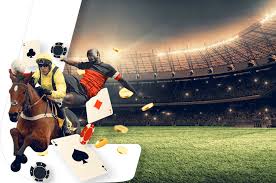
Best Strategies for Poker Tournament
Participating in a poker tournament is an exhilarating experience that challenges both your strategic thinking and emotional control. To enhance your chances of success, it’s critical to understand the Best strategies for poker tournament mostbet-sports.com/si and apply them effectively during gameplay. In this article, we will delve into various strategies that can elevate your poker game, focusing on key aspects such as pre-flop and post-flop tactics, bankroll management, and psychological strategies to dominate the competition.
Understanding the Structure of Poker Tournaments
Before diving into strategies, it’s essential to grasp how poker tournaments function. Unlike cash games, where you can buy-in at any time and leave whenever you want, tournaments feature a structured format with specific blind levels escalating over time. Accumulating chips is crucial, but so is endurance, as tournaments can last for hours or even days. Keep these factors in mind when forming your strategies.
Pre-Flop Strategies
One of the most vital phases of any poker hand is the pre-flop stage. Making sound decisions here can significantly influence the outcome of the hand. Here are some effective pre-flop strategies:

- Starting Hand Selection: Your choice of starting hands is critical. In early position, you should play tighter and limit the number of hands you play. In contrast, you can widen your range in late position where you have more information about your opponents’ actions.
- Adjusting to Opponents: Pay attention to how your opponents play. If you notice that players are overly aggressive, you might want to tighten up your own play and wait for strong hands to re-raise them.
- Use Position to Your Advantage: Being last to act is a significant advantage in poker. Utilize your position by playing a wider range of hands and exploiting the information gathered from previous actions.
Post-Flop Strategies
After the flop, strategies become even more nuanced as you assess the community cards and your opponents’ betting patterns. Here are some post-flop tactics to consider:
- Reading the Board: Analyze the texture of the flop. Is it dry (with little potential for strong hands) or wet (providing possibilities for straights and flushes)? Adjust your betting and strategy accordingly.
- Continuation Betting: If you were the pre-flop aggressor, a continuation bet can often take down the pot, especially if the flop doesn’t connect well with your opponent’s range. This strategy can be highly effective if used judiciously.
- Pot Control: If you hit a decent hand but are uncertain about its strength, control the pot size by checking or calling rather than betting aggressively. This strategy helps you avoid committing too many chips with marginal hands.
Bankroll Management

Effective bankroll management is an often-overlooked aspect of poker success. Tournaments can be unpredictable, and it’s vital to manage your funds wisely. Consider the following tips:
- Set Limits: Determine a specific amount you’re willing to lose in tournaments and stick to that limit. This practice will prevent you from chasing losses and help maintain a calm mindset.
- Divide Your Bankroll: Only enter tournaments that fit within your bankroll management strategy, typically no more than 5% of your total bankroll for a single tournament.
- Evaluate Your ROI: Regularly assess your return on investment (ROI) from tournaments to understand which games are most profitable for you and adjust your strategy accordingly.
Psychological Strategies
The mental aspect of poker is just as critical as the strategic side. Developing the right mindset can give you a significant edge over your opponents. Here are some psychological strategies to enhance your tournament performance:
- Stay Calm and Focused: Tournaments can become emotionally charged. It’s essential to remain calm and avoid going on tilt (playing recklessly due to frustration or anger).
- Use Psychological Tactics: Employ tactics like bluffing and misdirection to create uncertainty among your opponents. For instance, play strong hands passively to lure opponents into betting more.
- Adjust Your Mental Game: Adapt your mental approach to each table and opponent. Some players might respond better to aggression, while others may fold under pressure.
Final Thoughts
Mastering poker tournaments is a multifaceted endeavor that balances strategy, psychology, and bankroll management. By understanding the nuances of pre-flop and post-flop strategies, managing your bank effectively, and maintaining the right mindset, you can significantly improve your tournament performance. Remember that every tournament is a learning opportunity, so stay observant and continuously refine your strategies. Good luck at the tables!


